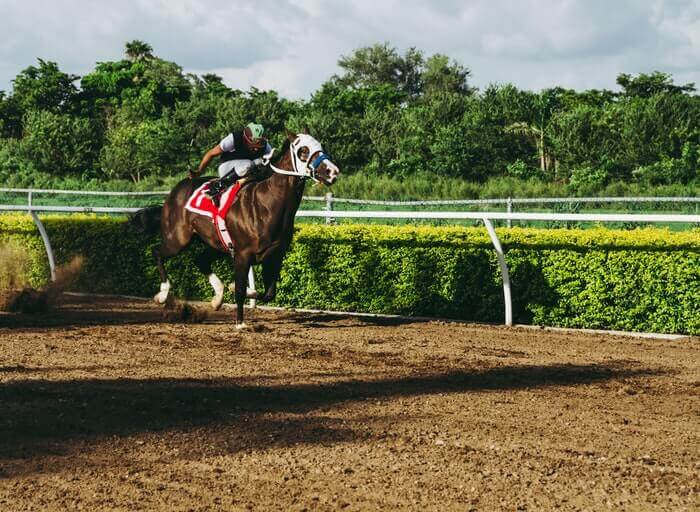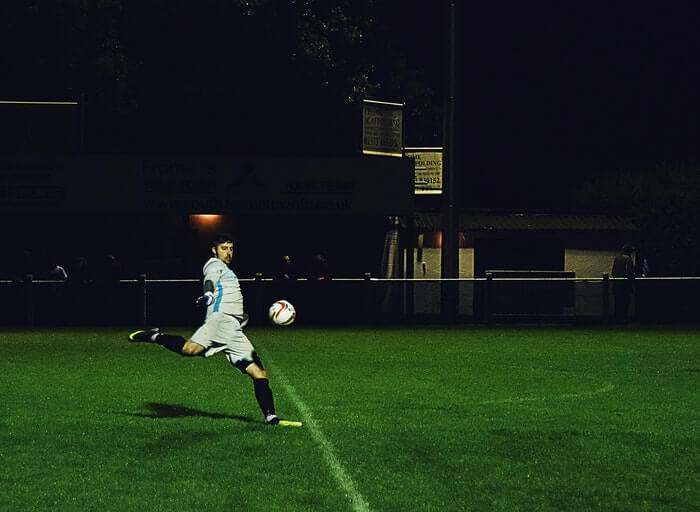The funny thing about the phrase “gambling in sports” is that the two words constituting it have vastly different connotations. “Sports” calls to mind the Olympic Games, their motto “Faster – Higher – Stronger,” the progress of humankind, and our innate need to always strive to do better. When you think of sports, you think of healthy bodies, team spirit, good energy, and the excitement of competing. And then, there’s gambling: A dangerous, and often unfair, game of chance.
So it’s quite curious – and telling about our complicated nature as human beings – that the two have been entwined since the dawn of civilisation, or at least, since the already mentioned Olympic Games in 776 BC. In other words, gambling in sports history started some 2,700 years ago.
The Then and Now of Sports and Gambling
USA
Let us now fast-forward to something closer to our times – the 20th century. For a very long time, sports betting in the US was prohibited throughout the country. For example, placing bets on sports events became legal in Nevada only in 1949. The decision was met with considerable resistance, and the predictions were rather bleak.
The franchise owners and different sports commissions warned of the detrimental impact of gambling on sports, which this ruling, in their opinion, was bound to have. They went so far as to predict that even the big leagues would suffer from match-fixing under the influence of gambling cash flow.
Nonetheless, Nevada’s first government-sanctioned “turf club” – as sportsbooks were then called – opened that year in Las Vegas, and it caused quite a stir among casino owners. However, the two kinds of betting operators quickly came to a tacit agreement to stay outside of each other’s business.
Another important year for gambling in sports was 1992. That was when The Professional and Amateur Sports Protection Act (PASPA) effectively banned sports betting nationwide. PASPA was overturned three years ago when the Supreme Court of the United States ruled it unconstitutional. Following this decision, in addition to Nevada and Oregon, 20 states legalised in-state sports betting. The last one to do so was Michigan in January this year. In some of these states, mobile betting is still awaiting approval.
Canada
In other parts of the continent, the situation was somewhat different. Sports gambling in Canada used to be fully legal, as were all other forms of gambling, until 1892, when the Canadian Criminal Code prohibited gambling altogether.
Since then, the country has considerably loosened its legislation, but it’s still not entirely legal to bet in Canada even today. This is the reason why Canadian casinos and other betting organisers are complaining of losing billions of dollars to their US counterparts with much more favourable (and less confusing) legislation.
One more thing adds to the confusion: Professional sports betting is already widely available to Canadian citizens thanks to online offshore operators and many sports betting sites.
The Canadian government aims to untie the proverbial Gordian knot of gambling legislation before them and make sports betting more liberal. One of the expected measures would be allowing Canadian gamblers to place single-game bets in addition to parlay bets, which are currently the only legal option.
UK
In the UK, football betting traditionally accounts for the largest number of total sports bets. Although we cannot pinpoint the exact date, the history of sports gambling in the UK is commonly said to have begun back in 1923, when Littlewoods Bookmakers offered pool-betting outside Old Trafford. Gambling in the UK was legalised by the Betting and Gaming Act in 1960, or, to be precise, this act legalised certain forms of gambling that were previously illegal.
Betting shops were licensed to open from May 1961 and, from this point on, they flourished all over the UK. Legislative changes in 2001 and 2002 paved the way for one of the most liberal betting environments of today.
The UK relationship between sports and the gambling industry – through teams, event sponsorship and increased publicity – is more robust than anywhere else in the world. Both sides are working to help the other grow.
For a UK professional gambler, football is usually the most appealing choice. And what can be a better way for bookmakers to reach their clientele than by sponsoring the players and teams gamblers would bet on (or against)? The best players in the world can be persuaded to change colours with the help of resources provided by bookmakers. And big sponsorships often make the difference between a team’s life and death.
The All-Pervading Influence of Betting
Throughout history, sports betting was either freely practised or restricted, with more and more countries legalising it every day. What is going on with world sports betting in general?
How It Affects the Individual
Gambling first became an issue with the rise of religions and their specific moral values, which often oppose the concept of instant gratification. Many things grant you that instantaneous pleasure: alcohol, drugs, cigarettes, video games, food – even fitness training and social media.
Today, the advice to refrain from such activities – sports betting included – is based on the growing body of evidence that gambling can be detrimental to your health and cause addiction. Compulsive gambling and gambling addiction are on the rise, and gamblers aren’t the only ones affected – their families and communities are, as well. Of course, gambling in sports is no less harmful.
Still, modern societies are based on upholding human liberties, so in today’s world, enforcing outdated laws in an attempt to protect people from the dangers of problem gambling will backfire more often than not. It is in human nature to desire things that are off-limits. It is essential that the wish to participate in gambling is satisfied in a safe and controlled environment, and not on the black market. Numerous examples from the past have shown that illegal gambling in sports is seen as “forbidden fruit” and becomes even more popular when banned.
How It Affects Sports
Another reason some policymakers condemn sports betting is that gambling organisers have the ability to manipulate the results of sports competitions and events, transforming a fair game into a scam. There is no doubt that every affair that lacks regulations (or the authority to enforce those regulations) offers space for all kinds of fraudulent acts. After all, the possibility of making easy money attracts various criminal elements.
Gambling in sports issues includes, but is not limited to, bribing athletes to intentionally lose a game or “shave points” – win without covering the point spread. Football and basketball are the sports where point-shaving is the most widespread, and professional boxing has an unfortunately strong association with match-fixing. Dog and horse racing are also extremely popular among sports bettors and, in attempts to “rig” these, perpetrators of race-fixing sometimes give the animals illegal drugs to boost their performance.
These practices often result in illegal gambling and in sports scandals, such as the Black Sox scandal that shook the world of American baseball in 1919. That year, the Cincinnati Reds won the World Series after eight Chicago White Sox members were bribed to lose several matches. They were subsequently banned for life from playing the game. In the 1950s, there were numerous scandals in US intercollegiate basketball.
Such scandals are sometimes centred around corrupt referees manipulating the results of the game. And of course, the rise of esports brought along the rise of esports match-fixing.
Sports players bet too, and this is yet another issue. A 2012 US study revealed that an astounding number of college student-athletes wager on sports. Among male student-athletes, 57% reported gambling in the previous year. The rate was lower among female student-athletes, but still very high – 39%. It is perhaps not surprising that student-athletes are more drawn to sports betting than their peers, given their interest in the subject. Still, it is very worrying that the same study linked gambling to decreased academic performance, even in cases of non-compulsive gambling.
Among those eager to place a sports bet, famous players can be found as well. Michael Jordan is probably the most famous professional gambler athlete. A basketball star and one of the world’s wealthiest sports players, Jordan used to be a frequent and keen gambler. His favourite form of gambling was playing cards, but it was betting on golf that cost him the most – hundreds of thousands of dollars. In May 1993, one of his golfing partners even released a book on the subject called “Michael and Me: Our Gambling Addiction… My Cry for Help”.
How It Affects the Economy
Forecasting in financial and sports-gambling markets makes it clear: Sports betting is a thriving industry, and it’ll only continue to grow. This is why the tax revenue increase is one of the main arguments in favour of legalisation of online sports betting. By legalising sports betting, national governments would leverage high cash inflow while also supporting the industry and its players.
Betting is also one of the main reasons people watch sports matches, so its legalisation would be beneficial for TV companies as well. The official acceptance of sports betting could boost the popularity of sports sponsorship due to increased media exposure, which would, in turn, be valuable to teams and players.
Advice for First-Time Sports Bettors
If you are thinking of gambling in sports, here is some advice.
Make sure you keep track of profits and losses. To keep your initial gambling endeavours on the more conservative side, go with the strategy of investing 1-2% of your bankroll per bet. A more hard-nosed bankroll management strategy, favoured by savvy bettors, is to bet 3% of your bankroll to bring in higher profits. Still, this tactic could just as easily yield higher losses.
Also, you should check the reliability credentials of your potential bookmaker before you place your bet. Do your sport-specific research on betting statistics religiously, as this can prevent many lost bets in your first months as a punter.
Don’t rely on mathematics in games, sports, and gambling. You may have heard that certain calculations and strategies based on statistics can help you win more often, but you need to bear in mind that any gambling, sports betting included, is first and foremost a game of chance. Play only with the money you can afford to lose. And if at any point you start feeling like you are in danger of becoming addicted to sports wagering, seek help.
FAQ
How has gambling affected sports?
Sports and gambling have been closely linked throughout history – from bets in front of the Olympic stadium in Ancient Greece to gambling in college sports. Legalised gambling funnels funds into supporting the sports, creates new jobs and offers more exposure to the games. But gambling also draws criminal elements to sports and makes it vulnerable to corruption. The legalisation of gambling has not solved this problem.
Why was sports gambling illegal?
Sports gambling was – and in many parts of the world still is – illegal because of the justified fear that it corrupts sports. And like any form of gambling, its addictive nature can be detrimental to the gamblers’ well-being. However, the world of sports betting is progressively becoming legal in its entirety, in an attempt to curb the negative impact of gambling.
What do units mean in sports gambling?
In betting-world jargon, a unit is used to measure the size of a bet. It aims to simplify monitoring and expressing gains and losses in universal terms, as bankroll sizes vary. As a newbie, it’s best to set the unit size between 1% and 5% and keep it there until you gain enough experience. You can also try gambling on sports players, but bear in mind that this form of sports betting requires additional research and is riskier than traditional betting on matches.
Should gambling be allowed in sports?
The right question is whether it’s possible to prevent people from wagering on sports? The answer is – probably not. Sports betting is already a thriving industry, grossing billions of dollars that continue to fill the black market operators’ pockets as long as sports betting remains illegal. Through proper legislation and enforcement of fair play, the legalisation of gambling in sports could solve this issue.


